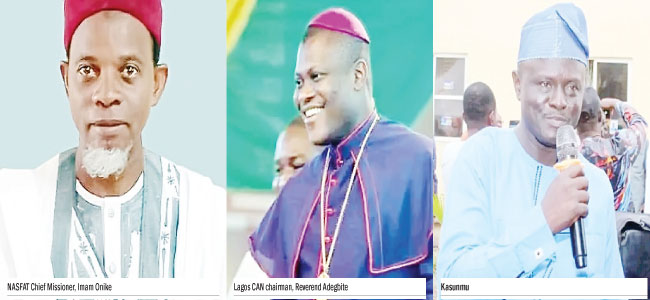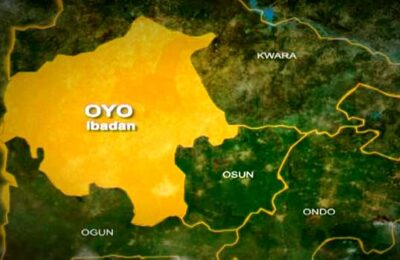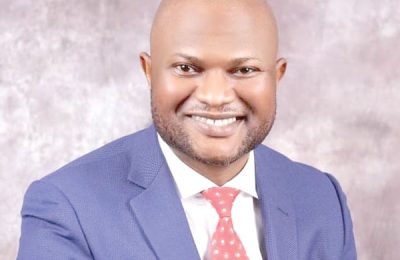SUBAIR MOHAMMED and OLUTOLA EBOSOLUME sampled the opinions of religious and community leaders as more victims come forward with their paternity fraud stories.
IN paternity disputes, men and children have been identified as the major victims. A recent report pointing at an uptick in infidelity cases arising from failed DNA tests among Lagos wives has brought the fate of the victims back into focus.
Expectedly, opinions have been diverse on the immediate and remote causes of the recent surge, the same way those expected to bring succour to the victims, particularly men that are caught in the middle of the drama, have been diverse on the choices such men can explore.

The Chief Missioner of the Nasrul-Lahi-l-Fatih Society, Imam Maruf Abdul-Azeez Onike, told Saturday Tribune that Islam has a distinct method of striking a balance between traditional values and modern developments for justice.
He emphasised that Islamic family law encourages dialogue between the parties involved in paternity dispute, involving religious and community leaders to reach an amicable solution that maintains the welfare of the child.
He said, “Islam is a way of life and a religion that has left no issue untreated. It has various coping mechanisms and remedies for paternity row.
“Islam, as a religion, usually maintains a balance between traditional values and modern technology, especially on mu’amalat (social issues). Moreover, when permissibility is the default rule on social affairs as based on Islamic legal maxim, ‘al-asl fi al-ashya al-ibahah’ (the original premise of things is that of permissibility), which is in turn based on the authority of numerous texts of the Qur’an and Hadith.

“Islam frowns on adultery and fornication. This is in line with the objective of shari’ah of preserving lineage/family and human dignity. Hence, Islam has primary methods of verifying paternity ties and authenticating lawful sexual relationship as established in various hadiths.
“Islamic law strongly presumes that a child born in a valid marriage is legitimate and belongs to the husband unless there is clear proof otherwise. This presumption offers a form of social and psychological protection for the family unit. It has to be noted, however, that “the rule of the bedstead” does not extend to cases wherein a paternal relationship is proven based on certainty.”
Delving into specifics, he stated, “Acknowledgment (iqrar) is one of the methods of determining the paternity of a child. It is an admission made by a person, in writing or orally or by gesture, stating that he is under an obligation or liability to another person in respect of some right. Islamic law emphasises the importance of the father’s acknowledgment of the child. If the father acknowledges a child, even in the absence of evidence, the child is considered legitimate.
“Physiognomy (qiyafah) is a circumstantial evidence method that was popular in pre-Islamic Arabian world. It denotes the ability to examine resemblance in bodily and physical features for the purpose of confirming family relationships, especially in paternity disputes. This concept has its basis in the hadith narrated by Aisha (RA).
“One of the primary Islamic mechanisms for resolving paternity disputes is through the process of mutual cursing (li’an). This is a method where the husband and wife mutually curse each other in front of a judge. This procedure is primarily used in cases of accusations of adultery. If completed, the marriage is dissolved, and the child is disavowed by the husband.
“The oath of kinship (qasama) is another method. In certain cases where there is insufficient evidence, oaths of kinship can be taken by relatives to assert paternity. This is especially relevant when there is no access to modern scientific methods such as DNA testing. Shura (Consultation and Reconciliation) Islamic tradition emphasizes resolving disputes through consultation (shura) and mediation. In paternity disputes, Islamic family law encourages dialogue between the parties, involving religious and community leaders, to reach an amicable solution that maintains the welfare of the child”.
On the reliability of modern-day testing technology, the cleric said, “DNA is a relatively new scientific breakthrough. It attracts divergent opinions from various schools of thought, Egypt’s Dar Al- ifta, the Islamic issues ruling giver in Egypt while answering a question on DNA affirms that Islamic law exercises extreme caution in matters related to paternity.
“Consequently, it is only acceptable to rely on DNA paternity testing after taking extremely strict measures to prevent mistaken paternity and protect honor. The Islamic Fiqh Assembly of the Muslim World League issued in its sixth session held in 2002 concluded that DNA testing to trace lineage must be handled with utmost caution and confidentiality. It is not lawful to give it priority over maxims and proofs from Islamic law.”
Onike implored couples to have mutual love, sincerity, loyalty and resolution to sustain family structure.
It’s DNA or nothing –CAN
Chairman of the Christian Association of Nigeria (CAN), Lagos State chapter, Reverend Stephen Adegbite, in offering a perspective on the vexed issue, urged couples to be truthful and contented in their marriages to avoid being entangled in paternity disputes.
He told Saturday Tribune that Christianity preaches and supports only the truth.
Baring his mind of paternity disputes and likely coping mechanism, he said there is no coping mechanism other than for affected couples to go for DNA test to know the real father when there is a dispute.
He said, “Christianity supports nothing other than the truth. If it’s not the truth, it has no basis in our religion. So couples must be truthful and faithful to themselves in marriage. And in the case of paternity dispute, the only way to determining the real father of that child is to go for a DNA test.
“When something is not true its not true. You must call a spade a spade and not an instrument of farming. Being led into promiscuity as a result of poverty has no basis in the scripture because there is a harlot in the bible. It is not only poverty that makes you go into promiscuity. Some people are not just contented. There are many people who are millionaires and yet they are promiscuous. Once you are not sincere you are not. There is no coping mechanism for victims of paternity fraud other than to go for DNA test.”
Two out of 10
A major paternity scandal rocking a community in Lagos (name withheld) is the story of a Mr Samuel (surname withheld), a relative to a prominent local leader in the state.
Samuel, who is based outside the country, is said to have come to terms with the new reality that two of his 10 children are not biologically his, after multiple DNA tests.
Pleading for the protection of the family name, a Nigeria-based relative disclosed that the issue was still raging in their domain, though their own, Samuel, was trying to move on with the remaining eight children.
Like Samuel like others
According to a 2024 report by Smart DNA, a leading DNA testing centre in Lagos, 73.1 percent of all DNA tests were conducted in Lagos, with 67.5 per cent of the test on the Mainland of the state and 32.5 percent on the Island. The report also indicated that more than one in four men tested are not the biological fathers of the children in question.
Elizabeth Digia, Operations Manager at the DNA centre said, “These findings offer a unique window into the changing dynamics of Nigerian families and society. The high rate of negative paternity tests and the surge in immigration-related testing are particularly noteworthy. They reflect broader societal trends that merit further discussion and research. The concentration of testing in Lagos also raises important questions about accessibility and awareness of DNA testing services across Nigeria. As a company, we’re committed to expanding access to our services nationwide while maintaining the highest standards of accuracy and confidentiality.”
For a final year student of the Federal Polytechnic, Ilaro, Ogun State, Bayo Ogunsiji, life isn’t fair as it’s a long and endless walk to discovering who his true father is. At 28 years, Ogunsiji was heartbroken to learn that the man that had catered to his needs from cradle, isn’t his biological father. This revelation, he disclosed, altered a lot about his current reality as he now doubts everything about himself including what the future holds.
He disclosed that his mother recently told him that the man he grew to know as his biological father isn’t.
He explained, “I was informed by my mother exactly three months ago that the man whom I have lived with and known all my life as my biological father is actually my foster father. Meanwhile, this man had played, and still plays the role of a father. He paid and still pays my bills, protects me, and also serves as a guide, mentor and life coach. “The news was a big shock. It left me doubting every single thing in my life for weeks. I was so disoriented that I began asking for my real name and my actual date of birth. It was that bad. It wasn’t until much later that my mother apologized for keeping such secret away from me. She said that she wanted me to be of age before revealing to me the true state of things.
“At that point, I wished all of it could be one terrible nightmare, one in which I would eventually wake up from. However, that wasn’t the case. Each time I think about it, I feel perplexed. A part of me longs to know who my biological father is. Nonetheless, I cannot throw away the role my foster father played, and still plays in my life. I will always acknowledge him as my father no matter what. It’s a sad experience,” Bayo stated.
Two daddies, one baby and a WhatsApp voice note
A WhatsApp voice note shared with Saturday Tribune has provided an insight into a paternity drama in Mojoda area of Ikorodu. In the triangular war are two men, laying claim to a baby and the mother of the baby.
55-year-old carpenter, Mr Isiaka (surname withheld) is the assumed father of the baby, because he is the husband of the mother, Modupe, a Beninese, but a certain Pastor Olabode is demanding a DNA test due to his conviction that the baby is his.
Findings by Saturday Tribune revealed that Isiaka, a father of five children from his previous marriage, has been married to Modupe for seven years without a child.
A community source explained that Modupe had to move out of her husband’s house to seek spiritual solution to her childlessness, and her quest led her into an alleged extramarital affair with Pastor, leading to the current mess.
Who owns the baby? A resident in the community, Ishola attempted an answer “From what we knew about Modupe, she is a decent person that focuses on her food business and nothing more. She was married to her husband, a carpenter for seven years without any child. But this started getting to her and affecting her interaction with her customers. Meanwhile, among frequent visitors to her food stall was a pastor. The man has been disturbing her for a relationship despite knowing that she is married but she didn’t show any interest in the man. But suddenly, we saw that they started getting closer and began dating.
“Later we heard that Modupe had packed out of her husband’s house and moved in with the pastor. The relationship was short-lived because things didn’t go as she envisioned. They lived together for just one week before she returned to her former husband. Months after, Modupe became pregnant and gave birth to a baby boy and Pastor resurfaced to claim the baby as his. He said he was responsible for the pregnancy because Modupe had been barren for seven years only for her to be pregnant after moving in with him. The quarrel escalated that it took the intervention of police officers at the Ikorodu police station to douse the tension and the two claimants eventually agreed to go for a DNA test when the baby is six months old.”
Giving his conviction, Olabode vowed to explore all means possible to reclaim his ‘stolen’ baby. In a WhatsApp voice note Olabode sent to the mother of the child which was made available to Saturday Tribune, he demanded for a DNA test to be conducted on the baby to resolve the issue.
He said, “How is my baby? I hope is in good health? You can see I didn’t call you for sometimes and that is because there is nothing to call you for. I call now to congratulate you and request for my baby. I want to also ask when you are bringing my baby back to my house. I will implore you not to wait till the time we conduct a DNA to determine who the real father of the new-born is because waiting for such time might be disastrous. I cannot leave my child for you in a home where herbalist lives. It’s a taboo. I only give you a few months to breastfeed my baby after which you bring it to my house. I don’t mind raising the money for the DNA but what is certain is, I cannot leave my baby for another person to father. I don’t want any disgrace for myself because you have caused enough disgrace for yourself and your husband. You know yourself that the baby is mine. So bring my baby.”
DNA not reliable, law should recognise traditional rites –CDC chair
Chairman of the CDC in Agbado Oke-Odo, Mr Ernest Kasunmu blamed the ‘Japa’ syndrome and increasing rate of poverty for the high rate of negative DNA tests. He also raised doubts about the reliability of the scientific procedure.
He said, “We have seen a situation where a patient went for an X-ray and it was discovered that he had an insect in his chest. It showed clearly on the X-ray but when he travelled to London for a surgery, another X-ray was conducted but this time, it was discovered that there was no insect in his chest. It was a wrong diagnosis he got here in Nigeria after all. We‘ve heard and seen several medical reports that ended up to be false.
“Wrong diagnosis is one major factor affecting the outcome of DNA tests. Nigerians are not that promiscuous to the extent portrayed by DNA test results. The medical regulatory authorities need to do something about this because many homes and lives are being destroyed by false negative DNA test results. Many of the equipment used to conduct the DNA tests have become obsolete. The statistics given by the DNA test centre as far as I’m concerned is wrong. It will only make us to doubt the paternity of our children.
“There are other ways of investigating who the real father of the child is. This can also be done traditionally through rites and rituals peculiar to every Yoruba family but the law only recognises the DNA test as the only test to determine the paternity of the child.
Psychologist recommends ‘faith therapy’
A professor of counselling and clinical psychology at the Lagos State University (LASU) Ojo, Prof. Temitayo Deborah Adewuyi said wrong paternity identity affects both the psychological and emotional wellbeing of the child. Prof Adewuyi blames bad governance, poverty, power and money for the increasing wave of paternity identity crisis.
She said, “Wrong paternity identity has to do with one’s life. When you talk about psychological wellbeing of the child, we are talking about emotional and mental wellbeing as well as the health status of the child. For an adult that is just discovering that the person that is known to him as father is not actually his father. Such person will run into depression.
“I will talk to the father that is caught in this kind of web to resort to faith. There is what we call faith therapy. He doesn’t have to take his life; after all we adopt and take care of children we don’t know. Failure is not a death sentence. Failure or loss is a ladder if you think positive. Something you cannot handle, you leave it to faith. That is faith mechanism. We need to use a paradigm shift. The government should look for social welfarism. Child rearing is a cause and effect. The father will have the belief that the child he is rearing will grow up and be like him. This is what is called bond attach. When there is DNA failure, there is no bond attached. It is more than murdering and that is why you see that people don’t take it lightly. The impact is pathological. It is psycho-pathological. The person will not trust anybody. And unfortunately that is where we are today in the country. We have to be careful as a family.”
Speaking further on the impacts of negative DNA tests, the mental health and substance abuse expert explained that, “There are some issues I see on the social media platforms that are troubling. Why? The reason is this, how can a man know that his wife is not faithful and people have been telling him that the child he is about to bring into his kingdom is not his but remains defiant. This is no charm, it’s common sense. Everything borders on the society. It borders on materialism that is power, poverty and money. Power and money rule the world.
“Imagine a mother releasing her children to the care of unknown persons because of poverty. The policies of the government are aggravating the situation too. We are creating problems for ourselves and our leaders are adding more to these problems. Who dare sell a child while we were growing up? A child is a pride to the family. You don’t know the physiological development of the child from the womb and you claimed it. This is why there is instability in the family, the society and the world. Everything is upside down.
“The removal of subsidy by the government is another. If you want to remove a subsidy that you know is going to affect the standard of living of the people then there must be an alternative. How do you mediate? Look at it now, poverty has spread out and it has brought up negative behaviours. The issue you brought is highly germane. It’s a current psychological issue. Once you are traumatic emotionally, you can never be the same.”
READ ALSO: Police confirm Oloba Salo hospitalised after gun attack in Lagos







